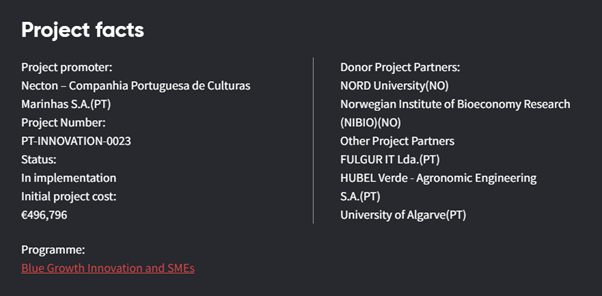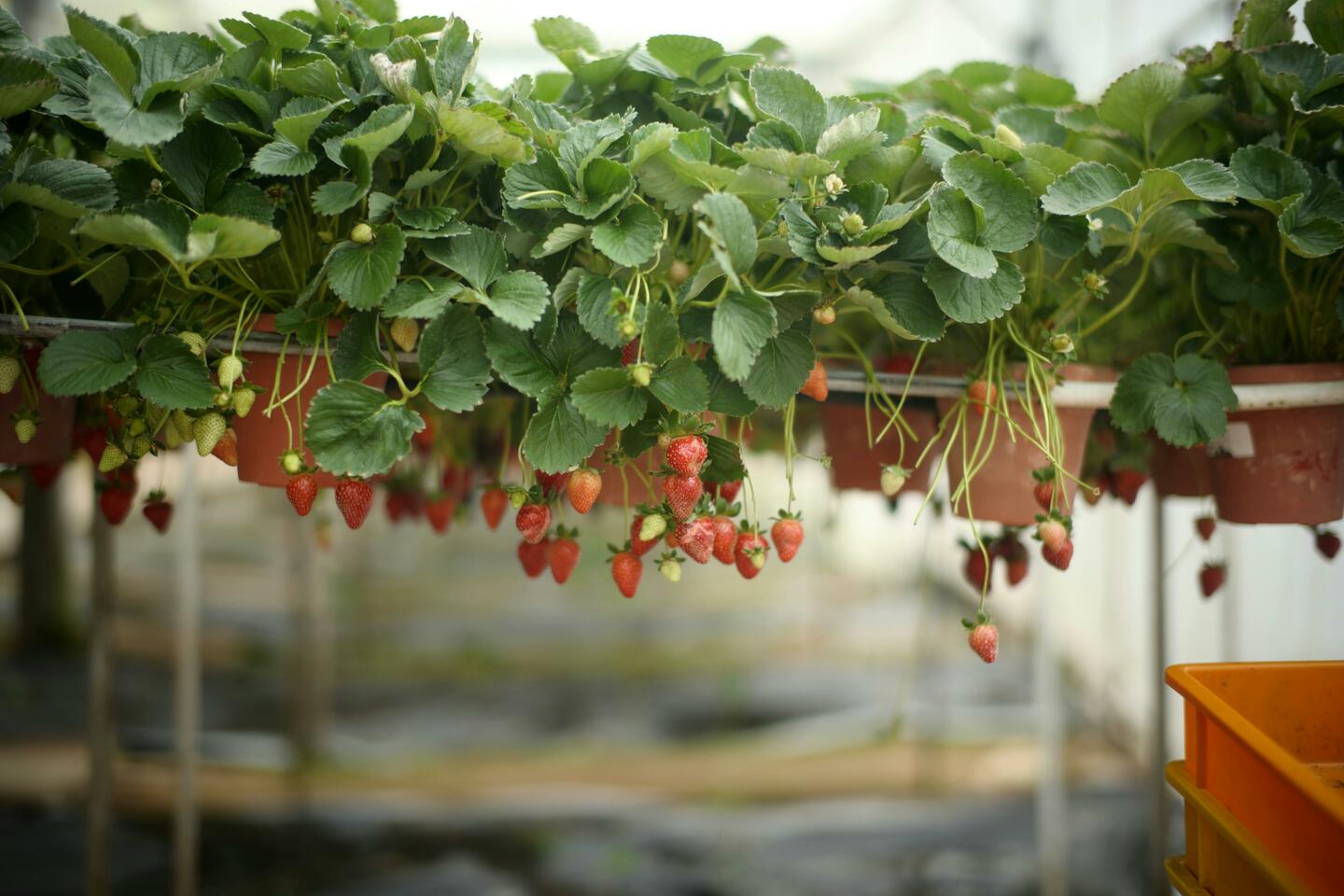That is the goal of AlgaCycle, a project in Portugal funded by the EEA Grants that aims to transform greenhouse wastewater into valuable products using microalgae. The project is led by the Portuguese company Necton, which is one of the oldest producers of microalgae in Europe, together with partners from Portugal and Norway, and has received 490.000 Euro in the current funding period.
But first, what is microalgae?
Microalgae are microscopic organisms that can grow in water and use sunlight and carbon dioxide to produce biomass and oxygen. They can also absorb nutrients and contaminants from water, making it cleaner and safer to reuse.
The biomass produced my microalgae contains proteins, lipids, carbohydrates and other useful compounds. These compounds can be extracted and used for various purposes, such as plant growth enhancers and animal feed ingredients. This is where AlgaCycle comes into play.
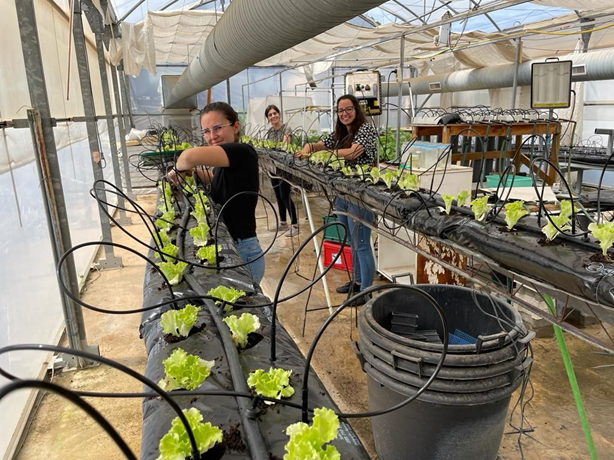
Creating a circular value chain.
By connecting the photobioreactors to the drain water, Necton can produce microalgal biomass from nutritious freshwater that would otherwise be wasted. This biomass can then be used to produce bio stimulants and aquafeeds to enhance plant growth and animal nutrition in fish. Thus, the AlgaCycle project can create a circular economy that reduces the environmental impact of greenhouse and aquaculture production, while increasing their economic and social value.
“AlgaCycle was the first step in our expansion strategy, taking advantage of the resources available next to soilless agriculture greenhouses, while developing innovate products and helping to solve issues related to freshwater scarcity and pollution.” João Navalho, Chief Executive Officer, Necton.
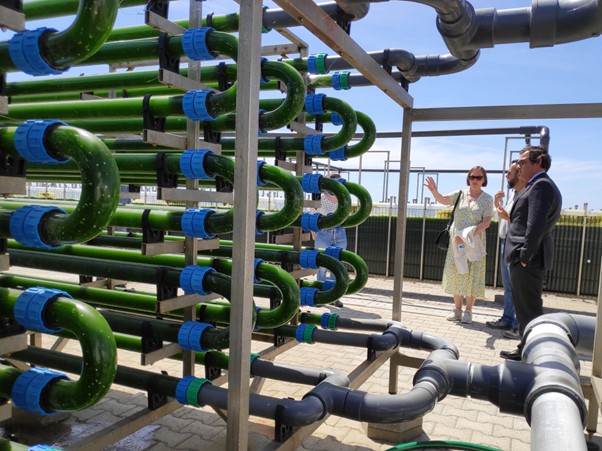
Partnership at the heart of the project
Several industry and research partners have taken part in realising the AlgaCycle project. Hubel Verde, Fulgur IT and UALG at the University of Algarve in Faro, Portugal, are local partners of the project, and have contributed to the research, development and testing phases of the project. The Norwegian partners include Nord University and the Norwegian Institute of Bioeconomy Research (NIBIO) in Bodø, Norway, have been testing how the microalgae would perform in aquafeed and its safe usage. Inês Beatriz Maia, a PhD candidate at the University of Algarve in Portugal, has through the project been on an exchange to Nord University:
“My exchange with Nord University was my first time living abroad, and I had the chance to meet extremely good professionals and learn from them. I also had the opportunity to work in a completely different field from what I am used to, so it was quite a challenge at times but extremely rewarding”.
Next steps
With the help of the EEA Grants, the AlgaCycle technology has proven to be feasible and Necton will now go ahead with expanding the project further with a new follow-up project called REALM, funded by the EU Horizon Europe programme.
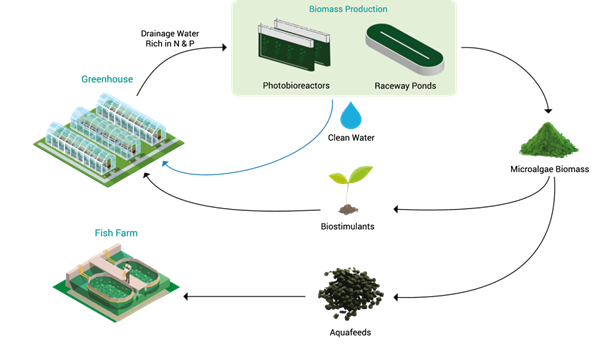
“With Algacycle we tested the concept of growing microalgae in drain water, but in REALM we will do that in a new microalgae production facility installed next to soilless agriculture greenhouses. We are very excited with this new challenge and very thankful for the initial support given by the EEA Grants”, says Alexandre Rodrigues, Coordinator of the Innovation Department at Necton and in the AlgaCycle project.
Blue growth and innovation in Portugal
The project is part of the Blue Growth, Innovation and SMEs programme under the EEA Grants in Portugal, which aims to increase value creation and sustainable growth in the Portuguese blue economy.
“AlgaCycle addresses several concerns of the EEA Grants Blue Growth programme by generating innovate know-how, bringing together partners and strengthening bilateral relations and increasing the competitiveness of Portuguese companies through sustainable solutions. All in all, the outcome is a win-win relationship where nutrient-rich drain water can be used as a nutrient source for microalgae”, says Sandra Silva, Director of Programming Services of the Directorate General for Maritime Policy in Portugal.
